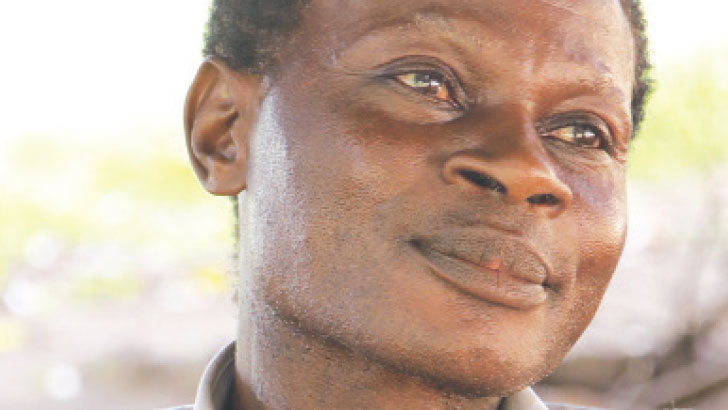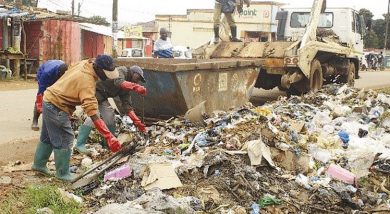Big issue with abortion law
In Malawi, nearly every adult knows someone who died from complications of clandestine abortion.
However, Malawians seldom discuss sexual issues, including the country’s third-largest killer of pregnant women.
In “the God-fearing nation”, the debate over the health hazards of clandestine abortion often stirs morality questions.
However, health workers want lawmakers to relax the laws inherited from Britain which force women to abort secretly.

considered new grounds
They find it ironic that government spends millions treating conditions that could be prevented by increasing exceptions to the law.
The current law only allows safe abortion when a woman’s life is in danger and those who seek or provide abortion risk being jailed for up to 14 years.
“Despite the restrictive laws, we still receive patients seeking treatment for life-threatening complications that would be averted if the law allowed skilled health workers to assist those who do not want to keep pregnancies,” says a health worker at Kaporo Health Centre in Karonga.
The health worker refuses to be named for fear of being excommunicated from her church, which preaches against abortion.
The health worker says women and girls endure untold misery due to a climate of fear created by the law.
“When one decides not to keep a pregnancy, she will take a huge risk and do the unimaginable to get rid of it. As such, the law only puts her life in danger,” the health worker explains.
The source treats the horrors of unsafe abortion in the cassava-growing district along Lake Malawi.
The caregiver explains: “My early encounter involved a woman aged 36 who was bleeding severely after inducing an abortion using local herbs in Mwakaboko Village.
“After examining her, we found a 30-centimetre stick in her private parts. The woman was struggling to raise three children and her husband died in 2010.
“She wanted to abort because she was afraid of her late husband’s family and the responsibility of supporting the baby.”
The patient had her womb removed at Karonga District Hospital because it was heavily perforated and infected.
Such stories are not peculiar to the shoreline setting where a mob killed an elderly woman accused of bewitching a girl who had bled to death after secretly inducing an abortion.
A 2009 study by the Ministry of Health study reported that abortions conducted by unskilled hands outside clinical settings cause up to 18 deaths in every 100 pregnancy-related deaths.
Senior Chief Mwakaboko says unsafe abortion remains a big challenge because teen pregnancies are common in the border district.
He says time has come for the government to expand grounds for safe abortion.
“You cannot tell that one has terminated a pregnancy until deadly complications emerge. Maybe it is time lawmakers considered more grounds for women to procure abortion in hospitals because if they do it on their own, it causes problems to their health, their wombs and their lives,” the traditional leader says.
A Bill waiting to be debated in Parliament seeks to make abortion safe and legal if the pregnancy results from sexual violence, is severely malformed foetus and hurts the woman’s physical and mental well-being. However, the law reform set in motion by the Ministry of Health to reduce maternal deaths faces resistance.
The process stagnated since 2016 when Catholics and evangelicals marched in protest against the movement for safe abortion On December 6 2016.
The halt prompted the Health Committee of Parliament to summon the Ministry of Health to aacount for the delay.
Committee chairperson Mathews Ngwale has volunteered to table the recommendations of the law commission in Parliament as a private member’s Bill.
However, Father Henry Saindi, spokesperson for the local conference of Catholic bishops, says religious groups are deeply concerned about the parliamentary committee’s push to allow “direct abortion”.
He says: “All the proposed grounds for abortion in the Bill fall into the category of deliberate termination of pregnancy whose only immediate intention is destruction of the unborn baby either as a result of rape or incest.”
Saindi described the proposed amendment as immoral, gravely sinful, unacceptable and not representative of the cultural values of people it is meant to serve.
“The Bill smacks of a foreign agenda or inclination to be in tandem with international protocols we signed as a country, which has nothing to do with the common good of Malawians, This is not a Malawian agenda,” the priest said.
This presents a veiled attempt to discredit the African Charter on Human and Peoples Rights on the Rights of Women in Africa, which guarantees women access to comprehensive sexual and reproductive health, including safe abortion.
Malawi is party to the African Union’s protocol signed in Mozambique’s capital, Maputo, which took effect in 2005.
Gender Activist Emma Kaliya, chairperson of the Coalition for the Prevention of Unsafe Abortion, says Malawi has to respect the Maputo Protocol because no one bullied anyone to sign up.
She says: “The motion for Parliament to discuss the Termination of Pregnancy Bill is a huge step in the history of Malawi because nobody knew that time would come when the House would debate the Bill.
“There was resistance out there and some groups threatened to de-campaign lawmakers who support the proposed law. Parliament cannot continue politicking while women keep dying of unsafe abortion.”
The protocol signed by fallen Minister of Health Marjorie Ngaunje contains the three grounds proposed by the Law Commission to expand access to safe abortion.






One Comment